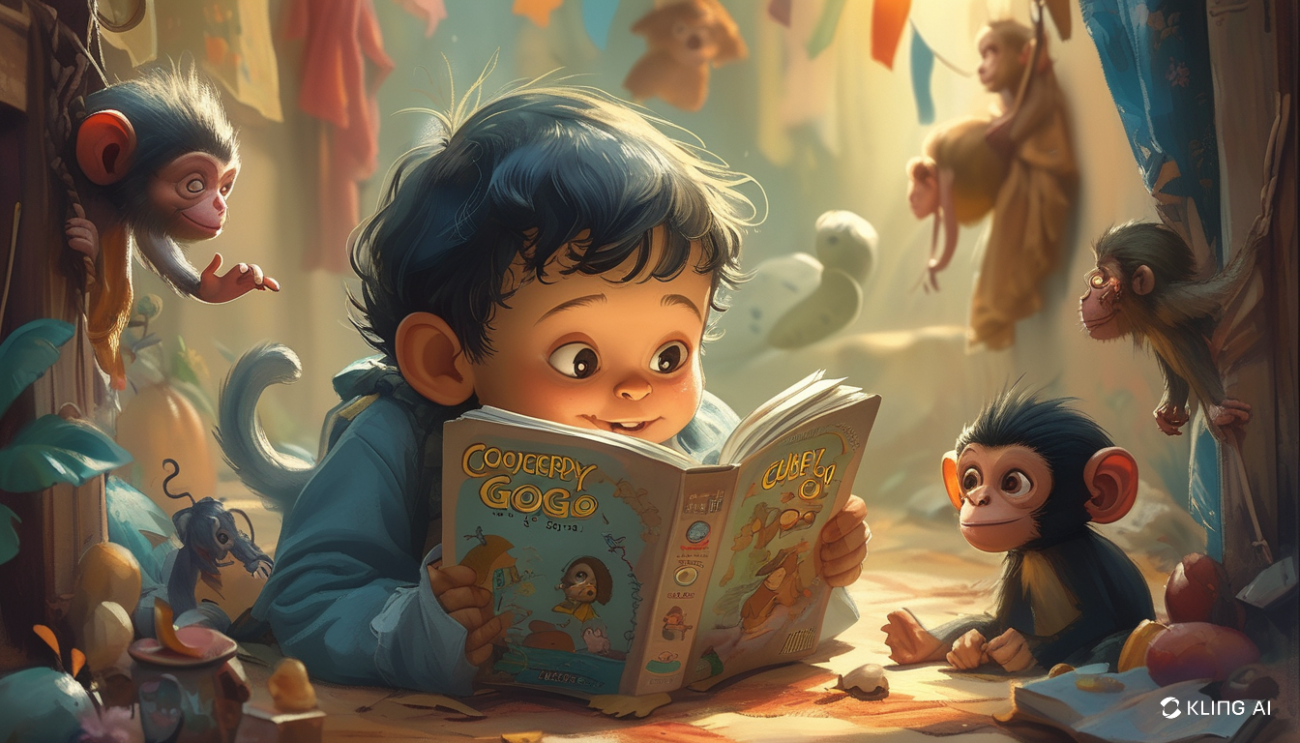Introduction to Children’s Books About Math
Hey there, fellow parents and educators! 😊 Are you on a quest to make math a fun and engaging subject for the little ones in your life? Well, you’re in the right place! Today, we’re diving into the fascinating world of children’s books about math, where numbers and stories come together like peanut butter and jelly. 🍞+🥜=❤️
Math-themed children’s books offer a delightful way to introduce young minds to the wonders of mathematics. They can transform abstract concepts into tangible adventures that captivate the imagination. Whether your child is just starting to count or is already curious about more complex ideas, there’s a book out there that can make learning math as exciting as a superhero adventure! 🦸♂️📚
Why Math Books for Kids?
Children’s books about math are a fantastic tool for several reasons:
- Engagement: Books naturally engage children by wrapping math concepts in colorful illustrations and relatable stories.
- Foundation Building: They help build a strong foundation in math literacy, making future learning easier and more intuitive.
- Confidence Boosting: A child who feels comfortable with math early on is more likely to approach the subject with confidence as they grow.
- Problem Solving: They also encourage critical thinking and problem-solving skills, which are essential in everyday life.
Books about math can be as simple as counting ducks on a pond or as intricate as solving a mystery with mathematical clues. Regardless of complexity, they serve as an excellent starting point for nurturing a child’s love for numbers. 🦆🔢
A Magical Blend of Learning and Entertainment
One of the magical things about children’s books is their ability to blend learning with entertainment seamlessly. Think about it: when a story is interesting, kids don’t even realize they’re learning. It’s like sneaking veggies into a delicious smoothie! 🥤🥦
Authors and illustrators have a special knack for creating stories that weave mathematical concepts into their plots. Whether through rhymes, adventures, or relatable scenarios, these books make math feel less like a chore and more like an exciting journey. By showing math in action within a story, children see its relevance, which can help spark an early and lasting interest. 🚀
Opening Doors to Imagination and Curiosity
Children’s math books are not just about numbers; they open doors to imagination and curiosity. They invite kids to explore, ask questions, and find joy in the discovery process. A well-crafted math book encourages children to see the world through the lens of numbers, shapes, and patterns, fostering a natural curiosity about how things work. 🔍🌍
So, as you venture into the world of children’s books about math, remember that each story is an opportunity to inspire and ignite a passion for learning. Whether you’re a parent looking to share a special moment with your child or a teacher aiming to make math more approachable, these books can be your trusty companions on this exciting educational journey. Happy reading! 📖✨
Importance of Early Math Literacy
Have you ever noticed how children are like little sponges, soaking up all the information around them? It’s truly amazing! And when it comes to math, starting early can make a world of difference. But why is early math literacy so crucial for our little ones? Let’s dive into some insights!
Building a Strong Foundation
Just like building a house, math skills need a solid foundation. Early math literacy helps kids establish a base for future learning. When children are exposed to basic math concepts at a young age, they develop a better understanding of numbers, patterns, and problem-solving skills. This foundation is essential, not just for math classes in school, but for real-world applications too!
Enhancing Problem-Solving Skills
Have you ever watched a child try to fit a square block into a round hole? They may not get it right the first time, but with some trial and error, they learn. Math encourages this type of problem-solving. By introducing math early, kids learn how to tackle challenges and explore solutions, skills that are valuable in every aspect of life.
Boosting Confidence and Love for Learning
We all know how much kids love feeling like they’ve accomplished something. When they understand a math concept, it boosts their confidence. This sense of achievement can foster a love for learning. Plus, when math is introduced in a fun and engaging way, it becomes something they look forward to instead of something they dread.
Improving Language and Communication Skills
Did you know that math can even help with language skills? As kids learn to describe mathematical concepts, they expand their vocabulary and improve their communication skills. Terms like “more than,” “less than,” “equal to,” and “patterns” become part of their language toolkit, enhancing their ability to express themselves clearly.
Encouraging Curiosity and Exploration
Children are naturally curious. They love to ask “why” and “how.” Early math literacy taps into this curiosity by encouraging them to explore and discover. Whether it’s sorting shapes, counting objects, or identifying patterns, math invites children to investigate the world around them with wonder and excitement.
Fostering Social Skills through Collaborative Learning
Math isn’t just a solitary activity. Think about how often we solve problems with others, whether it’s planning a road trip or dividing pizza slices. Early math activities often involve group participation, helping children develop social skills as they learn to work together, share ideas, and collaborate on solving problems.
Incorporating math into a child’s life from an early age is about more than just numbers and equations. It’s about preparing them for a successful future, filled with curiosity, problem-solving, and a passion for learning. So, let’s embrace the power of early math literacy and watch our little ones thrive!
Popular Math-Themed Children’s Books
Do you ever wonder how to make math more exciting and engaging for your little ones? Well, look no further than math-themed children’s books! These books not only make learning about numbers and shapes fun but also help children develop a love for math from an early age.
Here are some popular math-themed children’s books that are sure to capture your child’s imagination and make learning math an enjoyable experience:
- “Math Curse” by Jon Scieszka and Lane Smith: This hilarious and clever book follows a student who wakes up one day to find that everything around them has turned into math problems. It’s a great way to show kids that math is everywhere in the world around them.
- “The Greedy Triangle” by Marilyn Burns: In this colorful book, children learn about shapes and angles through the story of a triangle who wants to be more than just a triangle. It’s a fantastic way to introduce geometry concepts in a fun and engaging manner.
- “Zero the Hero” by Joan Holub: This book introduces the concept of zero in a simple and entertaining way. It follows Zero as he tries to find his place among the other numbers and shows children how important zero is in math.
- “Sir Cumference and the First Round Table” by Cindy Neuschwander: This clever book combines math and medieval adventure as Sir Cumference and Lady Di of Ameter introduce the concept of circumference and radius using fun storytelling.
- “How Much Is a Million?” by David M. Schwartz: Through imaginative illustrations and relatable examples, this book helps children understand the concept of large numbers and makes them more tangible and understandable.
These math-themed books not only entertain children but also help them build a strong foundation in math concepts. By incorporating storytelling and creativity, these books make learning math an enjoyable and enriching experience for young minds.
Discover the joy of mathematics through captivating children’s books! These engaging reads can spark a lifelong passion for numbers in your little ones.
Looking for ways to make math more appealing to your kids? You’re in luck! Let’s explore some fantastic math-themed books that are both educational and entertaining for children of various ages.
Foundations of Math: For the youngest learners, vibrant books introducing counting, shapes, and patterns are ideal. These often feature simple text and interactive elements to engage toddlers and preschoolers. Popular choices include Eric Carle’s “10 Little Rubber Ducks” and Ellen Stoll Walsh’s “Mouse Count.”
Mathematical Adventures: As children grow, they can explore more advanced concepts through story-driven books. Titles like “Sir Cumference and the First Round Table” by Cindy Neuschwander and “Math Curse” by Jon Scieszka blend mathematical ideas with exciting narratives.
Illustrated Math Concepts: Picture books offer a visual approach to learning math. “The Greedy Triangle” by Marilyn Burns and “Math-terpieces: The Art of Problem-Solving” by Greg Tang combine art and storytelling to create rich mathematical experiences.
Interactive Math Books: For hands-on learners, activity books with puzzles and games can reinforce math skills playfully. Consider “Bedtime Math: A Fun Excuse to Stay Up Late” by Laura Overdeck or “Math Lab for Kids” by Rebecca Rapoport.
Making Math Fun: Engaging Stories for Young Minds
Hey there, fellow parents and educators! Today, let’s chat about an exciting way to introduce math to our little ones: through the magic of storytelling. Buckle up as we explore how weaving numbers into narratives can transform math from a dreaded subject into an exciting adventure!
Why Mix Math with Stories?
Picture this: instead of dry worksheets, your child is solving math puzzles alongside their favorite storybook characters. Sounds pretty cool, right? Here’s why it works:
Bringing Abstract to Life: Math can seem like a bunch of floating numbers to kids. But when we tie those numbers to a thrilling plot? Suddenly, multiplication isn’t just about tables; it’s about helping the hero save the day!
Boosting Critical Thinking: These math-infused tales aren’t just entertaining – they’re brain boosters! They encourage kids to think outside the box and approach problems creatively. It’s like mental gymnastics, but way more fun.
Real-World Connections: Through stories, kids see how math pops up in everyday life. It’s not just classroom stuff; it’s a tool to understand the world around them.
Choosing the Right Math Stories
So, how do you pick the perfect math-adventure book? Look for stories where:
Math is part of the plot, not just tacked on
Characters use math to overcome challenges
There are interactive elements like puzzles or games
Benefits of Incorporating Math in Storytelling
Incorporating math into storytelling can be an incredibly fun and effective way to introduce complex concepts to children in an engaging manner. By weaving math into narratives and adventures, children can develop a positive attitude towards numbers and problem-solving from an early age.
- Make abstract concepts more concrete and relatable
- Develop critical thinking skills and improve problem-solving abilities
- Show the relevance of math in everyday life
When choosing math-themed books for your child, look for stories that not only introduce math concepts but also incorporate them seamlessly into the plot. Books that involve characters using math to solve problems or achieve goals can be particularly engaging for young readers. Interactive elements such as puzzles, games, and activities can also enhance the learning experience and make math more hands-on and enjoyable.
Overall, incorporating math into storytelling can be a powerful tool for introducing and reinforcing math concepts in a fun and engaging way. By choosing the right books and engaging with your child during reading time, you can help foster a positive attitude towards math and inspire a lifelong love for learning.














